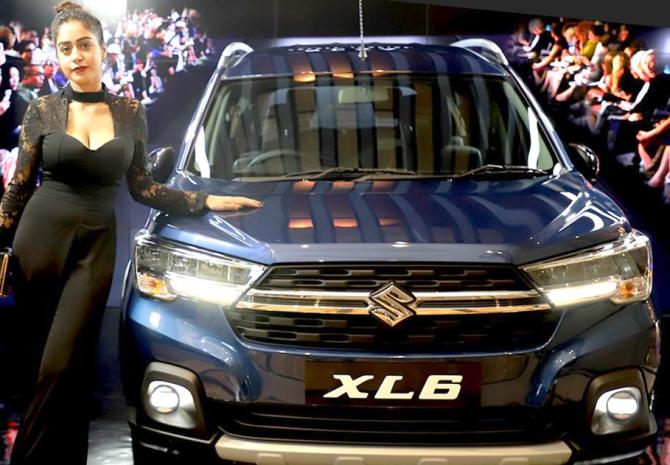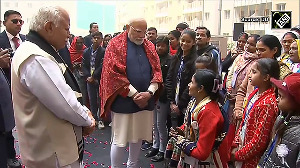Apart from physical stores, the company operates 2,700 digital touch points in the form of web pages, which is gaining good traction from tier-II and III centres.

Top carmaker Maruti Suzuki is bullish on the hinterland and plans to expand its sales and service network in the country's rural and emerging markets.
Currently, the company has a sales network of more than 3,100 outlets covering 2,000 locations, up from about 1,600 outlets in 2014, a growth of almost 100 per cent over the last five years.
"We plan to expand our sales network in the same ratio going forward, especially in the smaller towns and cities," Maruti Suzuki Executive Director (Marketing & Sales) Shashank Srivastava told the media in Lucknow.
Apart from the physical stores, the company operates 2,700 digital touch points in the form of web pages, which is gaining good traction from tier-II and III centres.
"The rural market growth has been good for Maruti Suzuki in comparison to the urban areas, especially in the current challenging auto market scenario. The rural market contributes 40 per cent to our sales, which was 7-8 per cent 10 years back," he informed.
Commenting on the domestic automobile sector, Srivastava said Maruti Suzuki was 'cautiously optimistic' in its outlook, since several of the factors pulling down the market were still alive.
"Some of the key elements, such as the higher cost of acquisition and difficult credit norms, both for inventory and retail segments, continue to pose challenges for the automobile sector," he observed.
He said the company, which commands a market share of over 50 per cent, had taken several steps to revive demand and cushion the impact of negative external factors by bringing the cost of acquisition down with discounts, asking the finance institutions to provide credit on the basis of on-road price rather than ex-showroom tag, and passing on the recent corporate tax cut benefit to the consumers.
He further attributed the sluggish growth in the automobile sector to some other factors too, including 2019 general elections, uncertainty over monsoon and goods and services tax (GST) rates, apart from the transition from BS IV to BS VI from April 2020.
Nonetheless, the domestic auto sector shown signs of a revival in October 2019 owing to festive season demand, with total passenger vehicle sales growing to 285,027 units from 284,223 units in October 2018. The utility vehicle (UV) space grew to 100,725 units in October 2019 from 82,413 units in October 2018.
"Maruti Suzuki has already launched eight models in BS VI variants and clocked total sales of 300,000 BS VI vehicles so far," he added.
The company is phasing out some diesel models due to the BS VI mandate, since the price differential would be substantive and unviable.
Meanwhile, Maruti Suzuki is testing an electric prototype of its Wagon R model in different climatic zones and terrains before making suitable changes and commercial launch.











 © 2025 Rediff.com -
© 2025 Rediff.com -